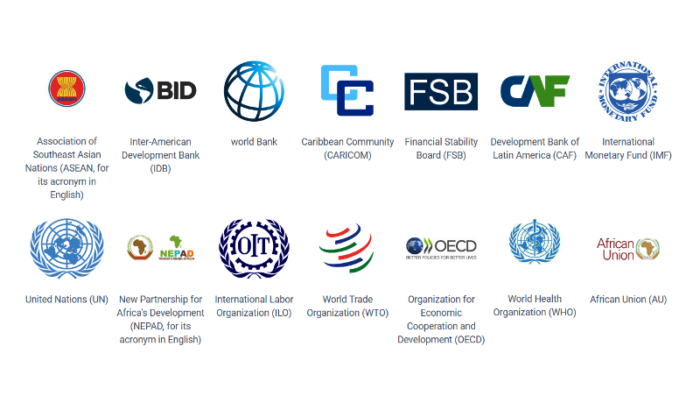
The Imperative for Global Coordination: The Significance of Intergovernmental Organizations.
In an increasingly interconnected world, the need for collaboration and coordination among governments globally has never been more critical. The challenges faced by humanity—ranging from climate change to pandemics, economic instability, and security threats—demand collective action and cooperation. Intergovernmental organizations (IGOs) serve as the linchpin in fostering this collaboration, playing a vital role in addressing these urgent global issues.
Urgency of Global Coordination among Governments:
1. Tackling Global Challenges: In an era where challenges transcend borders, such as climate change, the COVID-19 pandemic, terrorism, and refugee crises, no single nation can single-handedly address these issues. Global coordination among governments is indispensable to devise comprehensive solutions that have a meaningful impact on a global scale.
2. Economic Stability and Trade: Economic interdependence among nations necessitates coordinated policies to ensure stability, fair trade practices, and economic growth. International cooperation fosters a conducive environment for trade agreements, economic alliances, and the facilitation of global commerce, benefitting all participating nations.
3. Peace and Security: Maintaining global peace and security is a shared responsibility. Cooperation among governments through collective security arrangements and peacekeeping initiatives underpins the stability of nations and regions, thwarting conflicts and promoting diplomatic solutions.
4. Environmental Conservation and Sustainability: Preserving the environment requires unified efforts. Environmental issues like deforestation, pollution, and climate change disregard national borders, demanding collaborative strategies and agreements to protect the planet for current and future generations.
Importance of Intergovernmental Organizations (IGOs):
1. Facilitating Dialogue and Cooperation: IGOs provide a platform for dialogue and cooperation among nations. Entities like the United Nations (UN), World Health Organization (WHO), World Trade Organization (WTO), and others act as forums where nations come together to discuss, negotiate, and collaborate on common goals and challenges.
2. Setting Global Standards and Regulations: IGOs create frameworks and standards that guide international behavior, trade, health, environmental conservation, human rights, and more. These standards ensure a level playing field and promote harmonious interaction between nations.
3. Implementing Collective Solutions: Through IGOs, governments can pool resources, expertise, and efforts to implement collective solutions. Whether it’s distributing vaccines, setting emission reduction targets, or coordinating disaster relief, IGOs streamline and magnify the impact of joint actions.
4. Conflict Resolution and Peacekeeping: IGOs often play a pivotal role in conflict resolution and peacekeeping efforts. By deploying peacekeeping forces, facilitating negotiations, and mediating diplomatic talks, these organizations contribute significantly to stabilizing volatile regions and preventing conflicts from escalating.
In essence, the urgency for global coordination among governments is clear. The interconnected nature of our world mandates joint efforts to address the challenges that transcend borders. Intergovernmental organizations stand as vital conduits in fostering this cooperation, offering a platform for dialogue, the formulation of strategies, and the execution of collective solutions. Through these organizations, nations can transcend individual interests, work towards common objectives, and build a more secure, sustainable, and prosperous world for all.